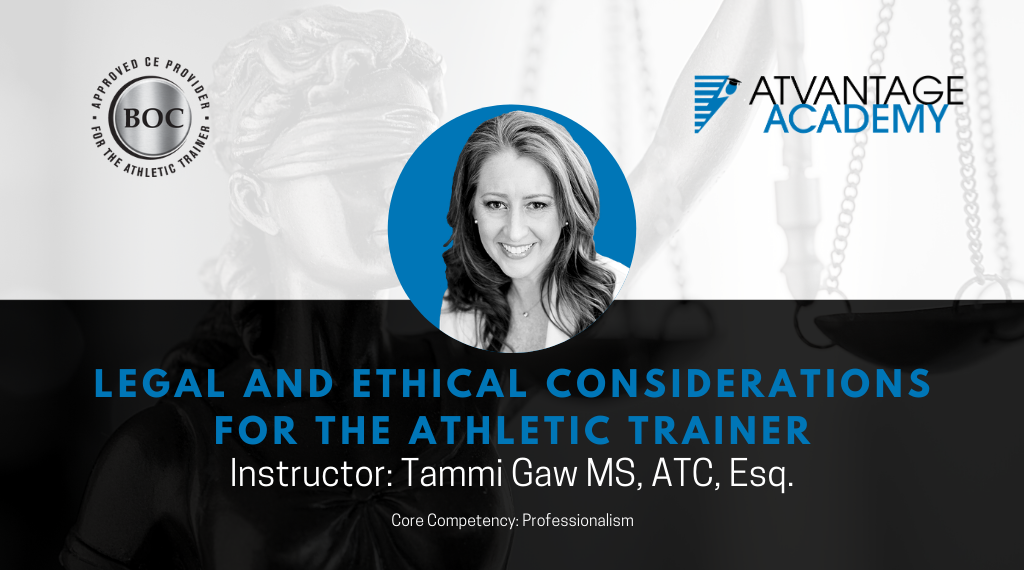Core Competency:
- Professionalism:
- Standard 65 – Practice in a manner that is congruent with the ethical standards of the profession
- Standard 66 – Practice healthcare in a manner that is compliant with the BOC Standards of Professional Practice and applicable institutional/organizational, local, state, and federal laws, regulations, rules, and guidelines.
AT Milestones:
- Professionalism:
- PROF-1: Completes a process of professionalization.
- PROF-2: Has professional and respectful interactions with patients, caregivers, members of the interprofessional team, and stakeholders.
- PROF-3: Demonstrates professional conduct and accountability.
- PROF-4: Exhibits integrity and ethical behavior in professional conduct.
This course is eligible for Category D CEUs
Purpose: In accordance with Standard 65 and 66 of the 2020 CAATE standards, the athletic trainer should be prepared to practice healthcare in a manner that is compliant with BOC Standards of Professional Practice and applicable laws, regulations, rules, and guidelines at the federal, state, local, or organizational level. This requires the athletic trainer to acknowledge the relevance of this information to their professional practice, understand how to properly implement the behaviors necessary to remain compliant, while simultaneously recognize their professional responsibility in the delivery of healthcare services. A successful completion of this course along with accompanying exercises will demonstrate proficient knowledge in the area of practicing with recognition and understanding of legal and ethical obligations and best practices.
Key Learning Objectives:
- Recognize key legal and regulatory aspects of federal, state, and local statutes that apply directly or indirectly to the work of the athletic trainer.
- Describe how to deliver athletic training services according to best practices, professional standards of conduct, and in compliance with accepted norms within the healthcare industry.
- Create processes within the athletic trainer’s practice for adherence to ethical and legal standards, allowing for continued compliance in the delivery of their healthcare services.
- Appraise situations or circumstances based on their level of risk in how it relates to the athletic trainer’s personal and/or career security.
Disclaimer:
Because the information discussed and provided in the accompanying course is prepared for a general audience, without investigation into the facts of each particular case, it is not legal advice: Tammi Gaw does not have a lawyer-client relationship with anyone who enrolls in this course. The thoughts and commentary about the law contained within is provided as a service to the community, and does not constitute solicitation or provision of legal advice.


